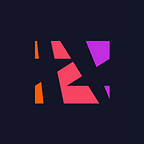We’ve all become skeptical of the word “revolutionize” in the last few years , and with good reason: It seems every new startup purports to “revolutionize the way you (fill in the blank here with something mundane)”. We don’t contend that new technologies aren’t valuable — they can certainly change the way we work, interact, learn, etc. — but they’re not revolutionary.
What is revolutionary and deserves to claim such a title is the decentralized economy, and the tools that support it. The ability to function autonomously — without the intervention of centralized decision-makers — presents a viable alternative to the existing models of governance employed by companies operating on a large scale. This change is indeed complete and dramatic — revolutionary even.
In traditional structures, decision-making is concentrated in the hands of a few users making decisions on behalf of other stakeholders. In some instances, decisions may contradict the wishes of other stakeholders, serving the interest of the decision-maker over others. This challenge has given rise to a new structure of governance, called Decentralized Autonomous Organizations, or DAOs. Employing DAOs as the foundation of governance revolutionizes decision-making by disbursing power and breaking down barriers to participating in the broad activities of governance.
The “DAO” in ZooDAO
ZooDAO employs this distributed model of decision-making, enabling users to fully participate in the future of the project with minimal obstacles to decision-making. The characteristics that make the DAO more democratic than alternatives are, first, the ability for any user to submit a motion to a popular vote; and second, the ability for all users to participate actively in those votes with minimal barriers to participation. ZooDAO’s decentralized decision-making mechanism enables users to submit proposals that change the structure of ZooDAO itself, from the details of battle mechanics to the use of funds in the insurance pool.
Membership and participation are enabled by holding ZooDAO’s native token ($ZOO), making governance permissionless. Holding $ZOO entitles a member to vote, without the intervention of any central authority; the results of votes are openly explorable on the blockchain, enabling users to transparently explore the results.
Building a permissionless environment
Developing and deploying a permissionless environment for users is not a straightforward process. Producing a custom solution for ZooDAO would mean a significant amount of infrastructure solely for coordination, with a dedicated network for participants to introduce and participate in votes.
While building ZooDAO, we evaluated a multitude of options to provide decentralized decision-making to our users, and arrived at Aragon as the most robust solution to meet our needs and expectations.
Aragon: Purpose-built solutions for decentralized decision-making
Aragon is the industry-leading solution to building large-scale DAOs. Built on the Ethereum blockchain, Aragon’s software is open-source, and enables ZooDAO to deploy a best-in-class decentralized solution, hosted on the Aragon network. Aragon offers all the functionalities necessary for maintaining DAOs, from managing financial resources, organizing votes and applying the results of votes directly to the smart contracts of ZooDAO itself.
Most importantly, Aragon Client provides us with a verifiably independent mechanism for users to decide on the future of ZooDAO. Aragon’s smart contract framework interacts directly with ZooDAO’s code to automatically apply the changes adopted through a popular vote administered on the Aragon network. This on-chain execution enables ZooDAO to maintain the trust of our users by ensuring that the outcome of votes are honoured fully and without outside intervention.
Aragon-enabled decision-making
The parameters of ZooDAO’s various mechanisms are designed to be modifiable based on the input of users. Votes submitted to the DAO through Aragon may alter a broad range of aspects of ZooDAO’s tokenomics, NFT Battles — even the name of ZooDAO itself.
A user may choose to propose a change to the diminishing value of votes submitted during NFT Battles — modifying the number of days of voting or the value of one vote (i.e. from 1.3 votes to 1.5 votes). The result of the vote would result in an immediate execution of the proposed change in the structure of ZooDAO’s code, without intervention of the project team.
About Aragon
Aragon is building the future of decentralized governance for Web3 communities & organizations. Deploy a DAO, manage your community, resolve disputes and run enterprise-level votes, all within our open-source stack.
Aragon Client is a robust, full-service solution to create and manage decentralized organizations, trusted by the biggest names with billions of dollars under management. Aragon Govern is a pioneering framework for frictionless DAO governance with on-chain execution and plug-in dispute resolution. Aragon Voice is a permissionless dApp for DAO proposals & secure voting, compatible with any ERC20 token and completely free to use. Aragon Court is a plug-in hub for Web3 arbitration that uses crypto-economic incentives for autonomous Guardians to rule on subjective disputes.
Aragon is trusted by over 1800 DAOs building Web3 communities and organizations. Our contracts secure hundreds of millions of dollars in locked funds and have transacted over $4bn in value for projects such as API3, Aave, Curve, and Decentraland. See the latest at aragon.org, subscribe to our monthly newsletter, join the conversation on Discord, or follow us on Twitter.
Docs | YouTube | Telegram | Github | Reddit | Linkedin | Forum
